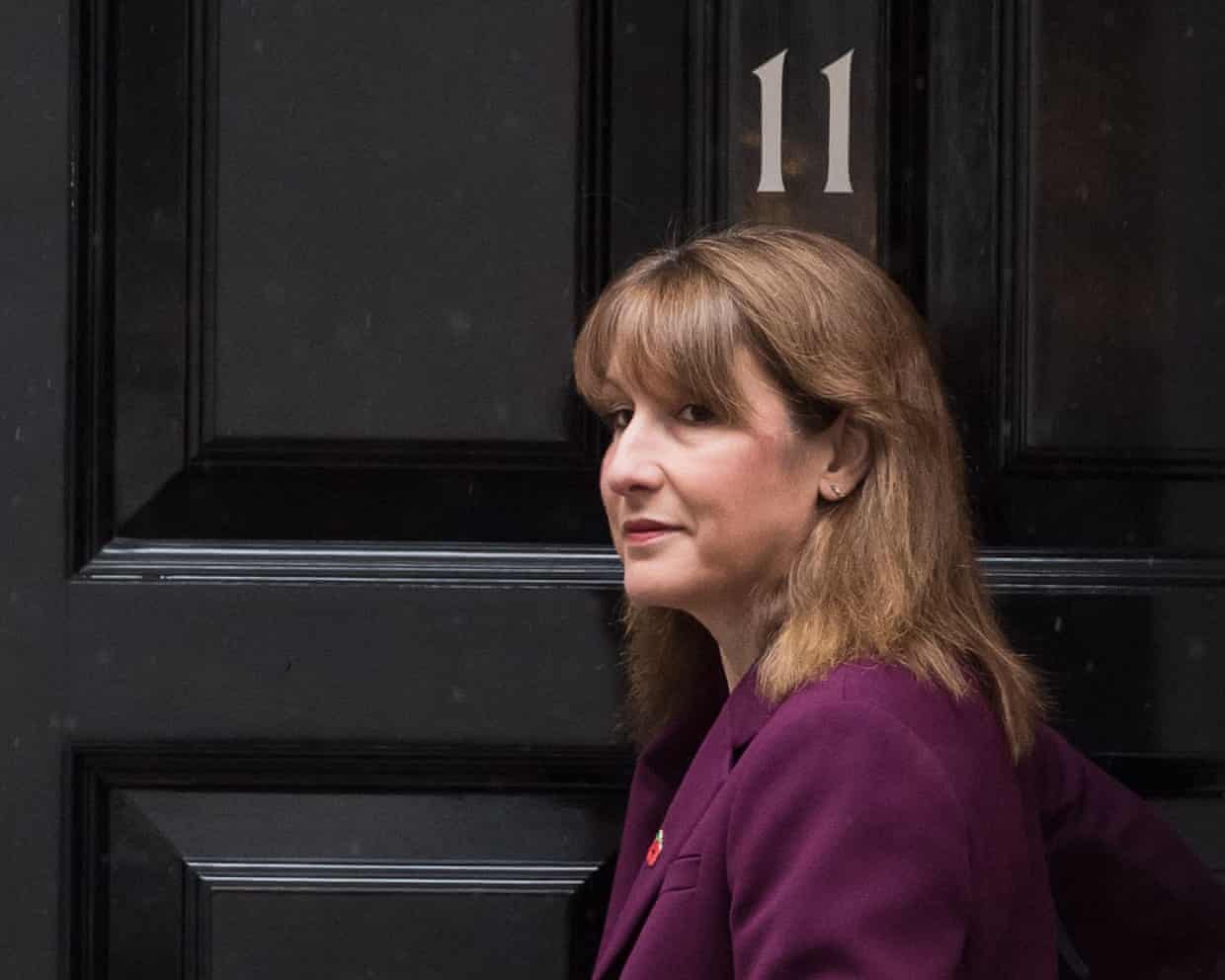Pound sinks against euro and dollar as tax rises loom and growth slows

The threat of higher taxes in next month’s budget and concerns about slowing economic growth pushed the pound to its lowest level against the euro in more than two and a half years at one point on Wednesday.Sterling also slumped against the dollar as traders digested news that Rachel Reeves will need to fill a larger hole in the public finances when she puts together her budget plan, after a bigger-than-expected downgrade to the UK’s productivity outlook.The pound fell to $1.32 against the dollar, hitting the lowest level since early August.The UK currency fared even worse against the euro, slumping to almost €1.
13, the lowest level since April 2023.It later recovered to settle at €1.14.Analysts said the prospect of tax rises and spending cuts as part of a tough budget on 26 November had brought forward the likely date for when the Bank of England will cut interest rates from the current 4% to 3.75%.
Until recently, financial markets had bet that the next rate reduction would be delayed until March, but investors are now fully pricing in a quarter-point cut in February,Analysts at Goldman Sachs changed their forecast on Wednesday, saying they expected a quarter-point cut to be brought forward to next week’s meeting of central bank policymakers,Lower rates push down currency valuations because investors move their capital out of a jurisdiction to invest somewhere else with higher rates in the hope of better returns,Threadneedle Street is expected to view inflation as having peaked after the official annual rate remained at 3,8% for the past three months, prompting an earlier cut to the cost of borrowing.
In the US, the Federal Reserve reduced its benchmark policy rate by a quarter point to the 3.75%-4% range on Wednesday after the conclusion of a two-day meeting.Jerome Powell, the Fed boss, voted with the majority for a more limited reduction than the Fed board member Stephen Miran – a Donald Trump nominee – who dissented in favour of a larger, half-point cut.The US president has called for steeper cuts in borrowing costs but over the longer term most analysts estimate that US interest rates will settle at a higher level than the UK’s, making dollar assets more attractive.Chris Turner, global head of markets at ING, said: “It looks like the fall in sterling is largely driven by the view that Reeves will hold the line on the budget – perhaps be forced to raise taxes or cut spending a little more than she’d been planning.
Sign up to Business TodayGet set for the working day – we'll point you to all the business news and analysis you need every morningafter newsletter promotion“But by holding the line on the fiscal rules, the BoE might have to cut rates a little earlier than had been priced by the markets.”He said Reeves’s tough stance had also lowered the UK’s risk as a borrower, making its debt financing cheaper.The likelihood of a cut in UK interest rates at a meeting next week has risen from 15% to 35%, said Turner.“So the sterling sell-off is not about Reeves credibility or the UK fiscal hole, but more the adjustment towards tighter fiscal and looser monetary policy – which is typically negative for a currency,” he added.Ipek Ozkardeskaya, a senior analyst at the currency dealer Swissquote, said it was notable that the British Retail Consortium’s inflation index for October showed the sharpest decline in food prices since the pandemic, which will be a “boost for the doves” on the Bank’s monetary policy committee concerned about rising shop prices.

Almost all children in 73 areas of England live in low-income households
Almost 100% of children in 73 neighbourhoods in England are living in income-deprived families, according to new measures that factor in the impact of soaring rents.Changes to official measures reveal the neighbourhoods where in effect all children live in low-income households. Of these, 31 are in inner London boroughs with high housing costs such as Tower Hamlets, Hackney, Haringey and Westminster.The new indices of multiple deprivation confirm that attempts at levelling up have failed to shift stubbornly high levels of deprivation in so-called left-behind towns and cities in the Midlands and north of England.Blackpool, Middlesbrough, Burnley, Manchester and Birmingham are the top five most deprived local authority areas

UK woman who booked Oslo flight but did not fly loses child benefit ‘because she emigrated’
A woman who booked a flight from London to Oslo but never checked in or travelled has had her child benefit stopped by the UK government. Tax authorities told her their records showed she had emigrated.Lisa Morris-Almond is one of thousands of people who have had their child benefit frozen as part of a botched crackdown on benefit fraud.She was due to travel to Norway in April 2024 for a wedding but her friend called it off just days before and Morris-Almond did not check in for her British Airways flight.But three weeks ago she noticed her child benefit had not arrived as usual and rang the child benefit helpline where she was told to check with her bank, a routine request

Only full abolition of two-child benefit cap will substantially cut poverty, thinktank says
Failure to abolish the two-child benefit limit would wreck the government’s child poverty ambitions and risk creating levels of hardship not seen under a Labour government for more than half a century, an analysis warns.The Resolution Foundation said political courage was required for ministers to show they are serious about reversing trends that, if not addressed, would push the rate of child poverty to a historic high by the end of the decade.It advised the government against introducing half-measures that would dampen the impact of the two-child limit – such as lifting the limit for families in work – saying this would have little or no meaningful effect on overall child poverty rates.The thinktank’s analysis concludes: “In one fell swoop, the government could reduce the number of children growing up in poverty by 330,000 today and save a further 150,000 children from that fate by 2029-30 if it were bold enough to scrap the two-child limit in full.”Aside from the economic and moral case, the Resolution Foundation suggests failing to emulate some of its Labour predecessors by reducing child poverty will tarnish the government’s social justice legacy

Patients go to court to stop embryos being destroyed after admin error
A group of at least 15 fertility patients are taking legal action to prevent their frozen embryos being destroyed as a result of administrative errors that could deny them a chance to have children.The group, which includes people with cancer and fertility problems, froze gametes or embryos to improve their chances of conceiving later on, but were informed by their clinics that owing to administrative errors they had not renewed their consent in time and would not be able to access their embryos or extend their storage without a court order.In some cases, people only learned of the errors when they approached the clinic about their plans to have a child and for some it is their only hope of conceiving naturally. In other cases, clinics approached couples after internal audit processes and apologised for their errors but notified them that they could only extend storage through a court order.The errors relate to two changes in law

Robert Wilkinson obituary
My father, Robert Wilkinson, who has died aged 73, was employed for more than 30 years in local government, mostly as a community worker for the London borough of Waltham Forest, but also managing lottery funding bids in nearby Camden.Outside his career, Robert’s main passion was oral history, which he believed was a way of giving voice to ordinary people who would otherwise have left behind just birth and death certificates.In 1983 he co-founded the Waltham Forest Oral History workshop, whose members interviewed hundreds of local people; it also published books and pamphlets on subjects such as school strikes, childhood health and local pubs. He later became a long-serving committee member and treasurer of the national Oral History Society.Later in life he worked as a freelance, including as the oral historian in residence for two years at Kettle’s Yard in Cambridge and for the British Library

Councils in England face clampdown on four-day working weeks
The local government secretary, Steve Reed, is seeking to clamp down on councils introducing four-day working weeks after writing to South Cambridgeshire warning that the policy had damaged performance.Reed told the council, which is the only local authority to formally trial a four-day week for staff, that they risked worsening public services and value for money.His letter, first seen by the Telegraph, marks the first intervention by the Labour government on shortened working weeks in local government in England.Reed wrote to Bridget Smith, the council’s Liberal Democrat leader, noting there had been a deterioration in rent collection and repairs by the council.“The independent report shows that performance declined in key housing-related services including rent collection, reletting times and tenant satisfaction with repairs, especially where vulnerable residents may be affected,” he wrote

Novo Nordisk bids $9bn for obesity drug maker Metsera in challenge to Pfizer

ECB keeps interest rates on hold despite eurozone inflation fears

Google Pixel 10 Pro Fold review: dust-resistant and more durable foldable phone

Teenage boys using ‘personalised’ AI for therapy and romance, survey finds

India beat Australia in historic chase to reach Women’s Cricket World Cup final – as it happened

India chase down record total to stun champions Australia and reach World Cup final